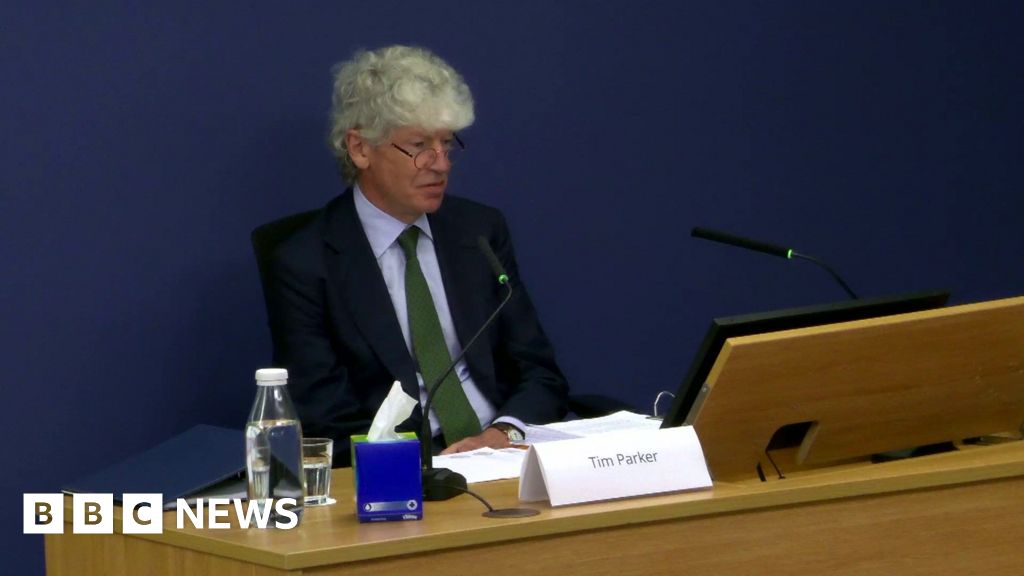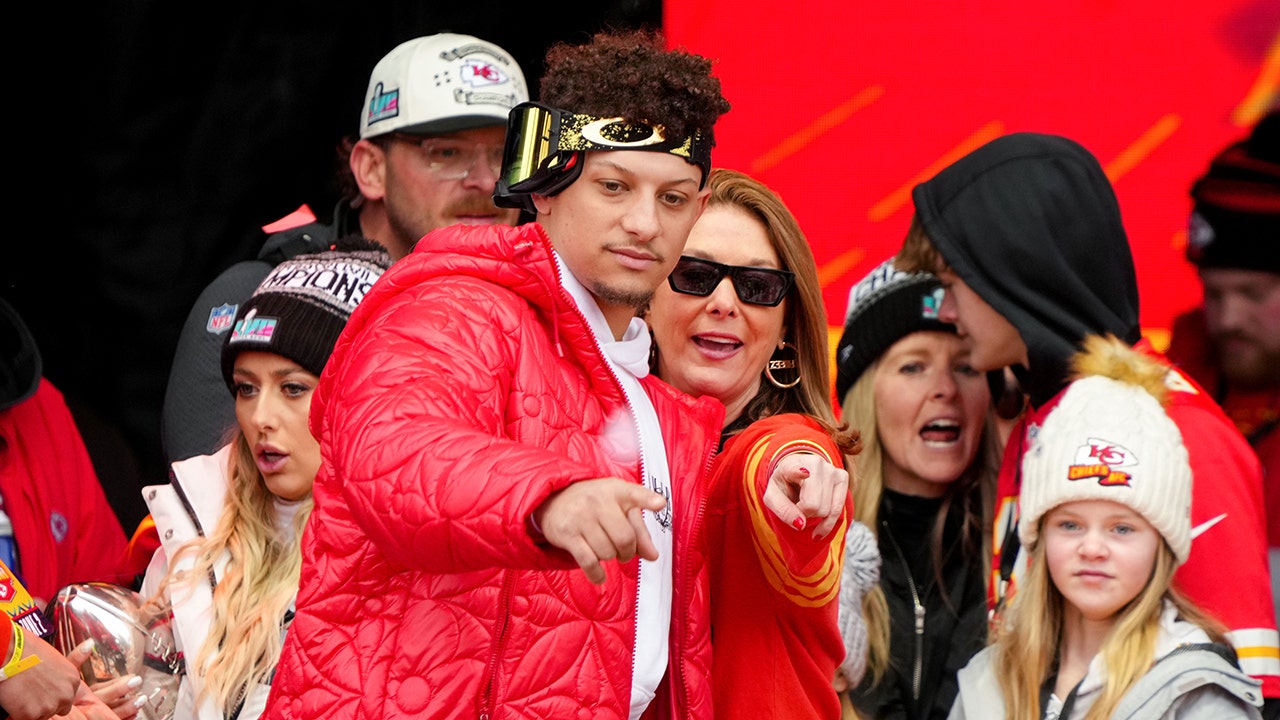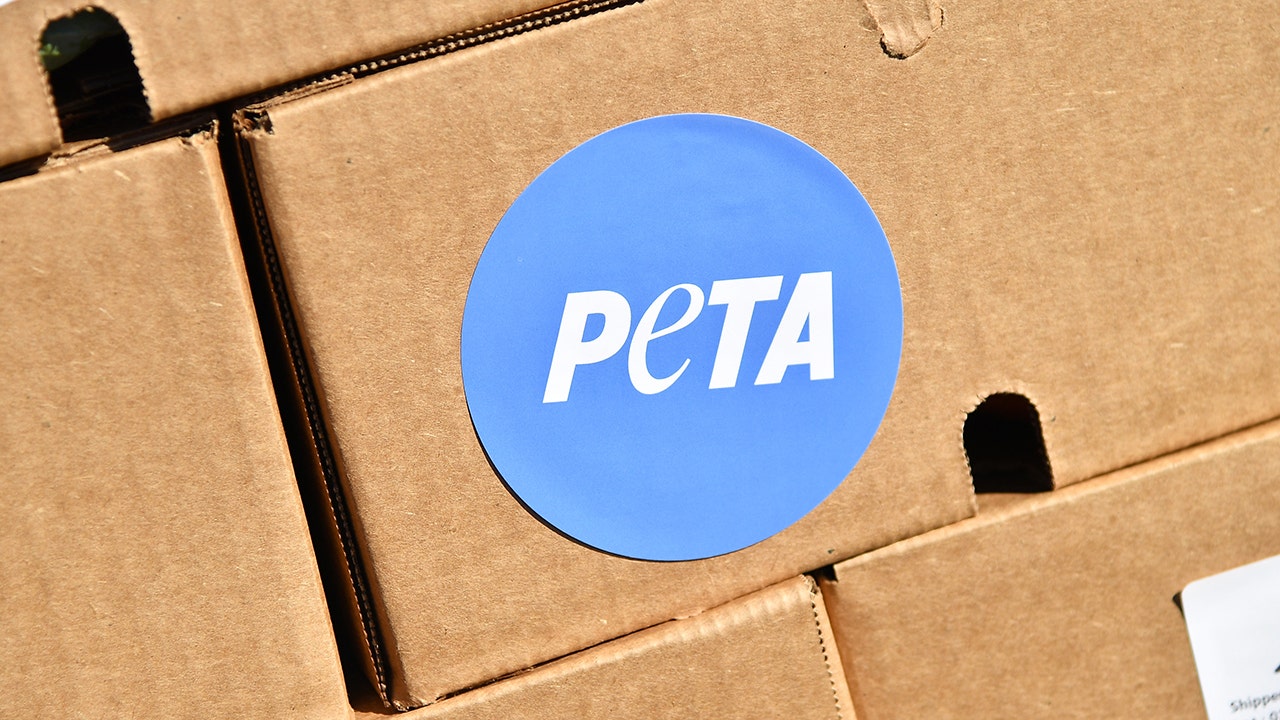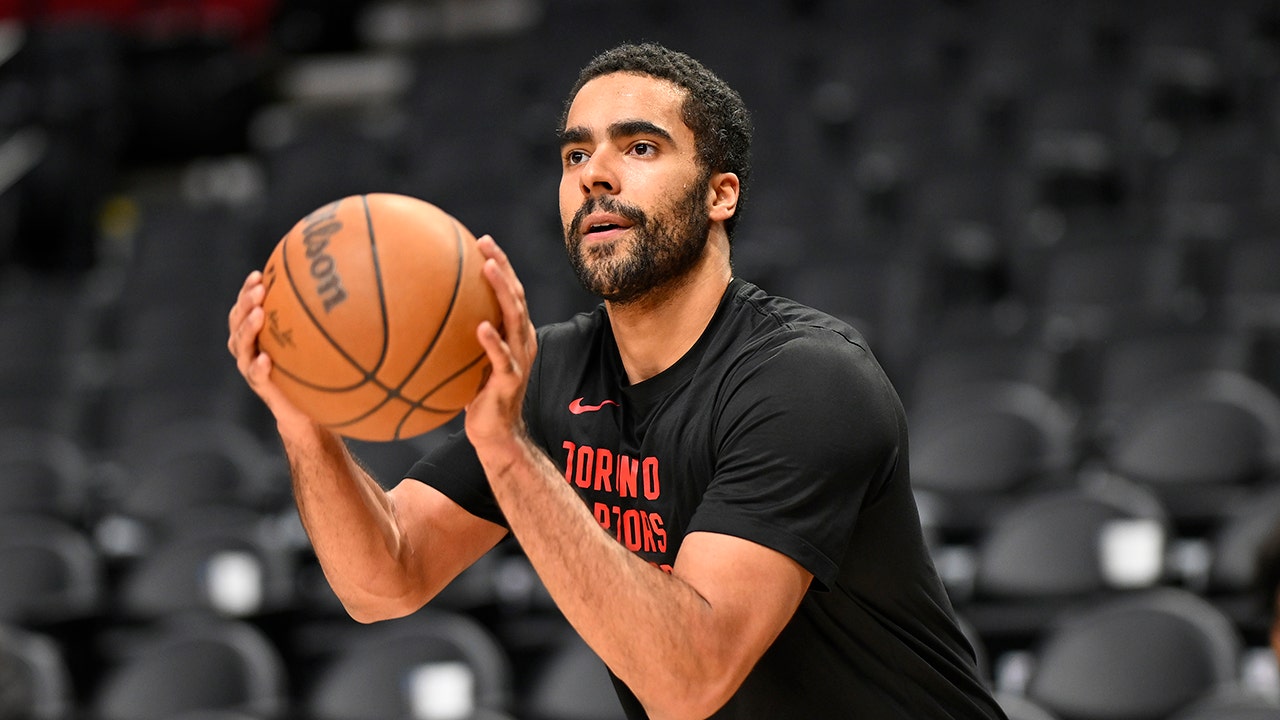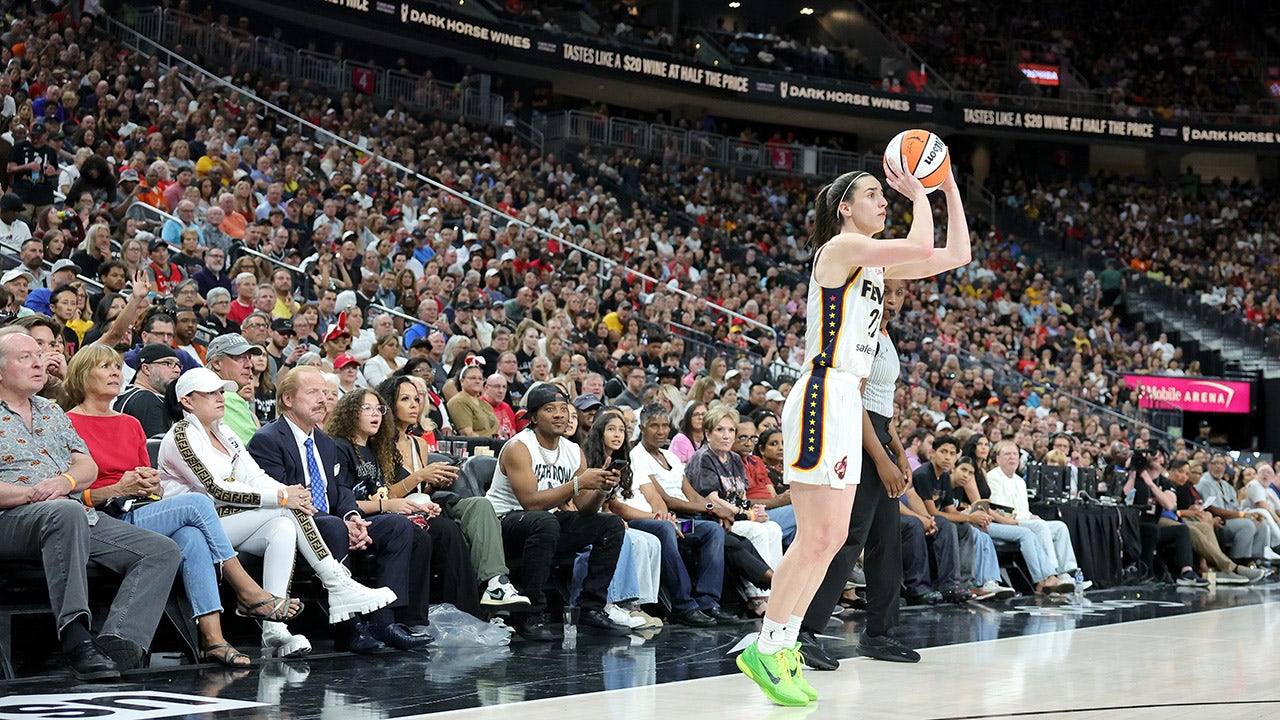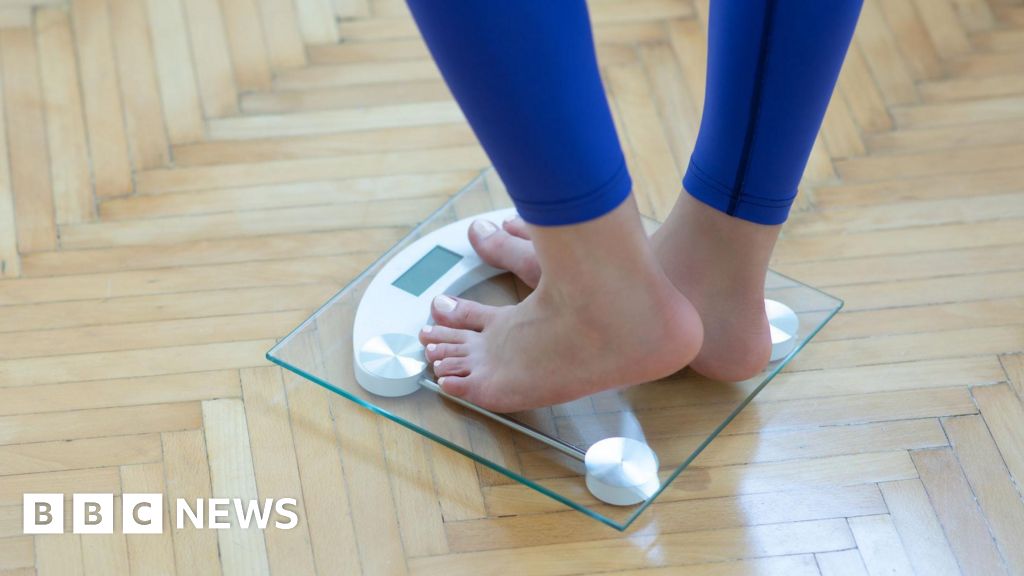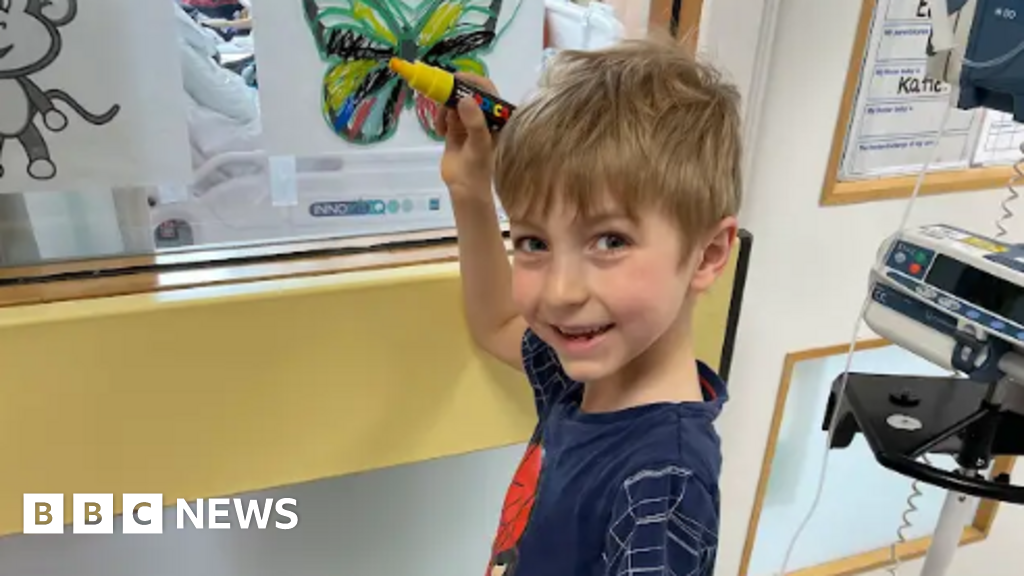By Michelle Roberts, Digital health editor
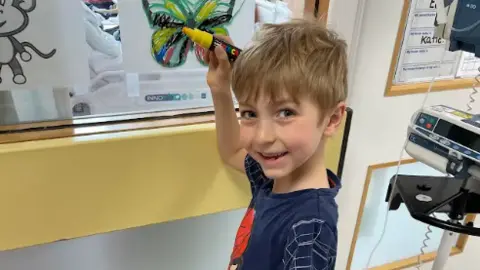 Eddie’s family
Eddie’s familyChildren with cancer are getting better treatment thanks to a genetic test the NHS has been offering, say experts.
Whole genome sequencing (WGS) checks the entire DNA code of the tumour to identify each cancer-causing mutation.
That information helps doctors quickly decide what medicines will work best.
It can also give clues about why the cancer occurred and whether family members might be at risk too.
Eddie’s story
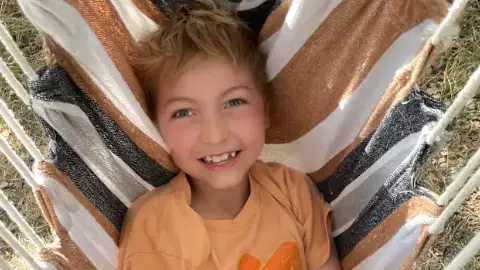 Eddie’s family
Eddie’s familyEddie, from London, was six when he became unwell with unexplained fevers and breathlessness.
A chest x-ray revealed a huge mass on Eddie’s chest – half the size of his lung. More tests revealed it was a type of leukaemia known as T-ALL, a sub-type of acute lymphoblastic leukaemia.
Hi mum Harri said: “You really don’t think it will ever happen to your child.
“It felt like our world fell out from under us. During those first few weeks, I remember wondering if this was it, I was taking so many photos of us together and wondering if it could be the last.”
Eddie and his family were offered WGS as part of his treatment at Great Ormond Street Hospital in London.
Harri said: “We didn’t even hesitate. I wanted to have all the information, I wanted to have some peace of mind for the future and know that Eddie was having the right care throughout.
“I also wanted to make sure that Eddie’s brother, Leo, wasn’t any more likely to get T-ALL because Eddie had.”
Prof Sam Behjati, from the Wellcome Sanger Institute and the University of Cambridge, said the test could give the “most comprehensive and cutting edge view of cancer”.
He has been reviewing how well the test guides cancer care by looking at children it has helped.
In around a third of the 281 cases he evaluated, WGS improved how doctors understood and treated the disease.
For example, the test could show if there were mutations that increased future cancer risk so preventative measures, such as regular screening, could be started.
The findings are published in Nature Medicine.
Prof Dame Sue Hill from NHS England said it was great to see evidence of the benefits of this for children and young people with cancer.
“This data will lead to more widespread use of whole genome sequencing on the NHS.”
What happens in a whole genome sequencing test?
WGS looks for DNA changes in cancer cells that are absent in healthy cells.
That involves:
- Collecting a sample of the tumour for testing, along with healthy blood or skin samples for comparison
- Lab analysis can show if the cancer may be inherited and have implications for family members, and how well it might respond to different treatments
Source: NHS England
Now aged nine, Eddie is cancer free and has just finished his treatment.
Harri told BBC News: “He’s doing amazing now. This week has been an absolutely incredible week. When you get to the end of your cancer you ring a bell to signify the end of treatment.
“On Wednesday he rang the bell at Great Ormond Street Hospital in front of many of his medical team, his two sets of grandparents, my husband, myself and his little brother. It was a monumental occaision.
“We are just really looking forward to the future.”







